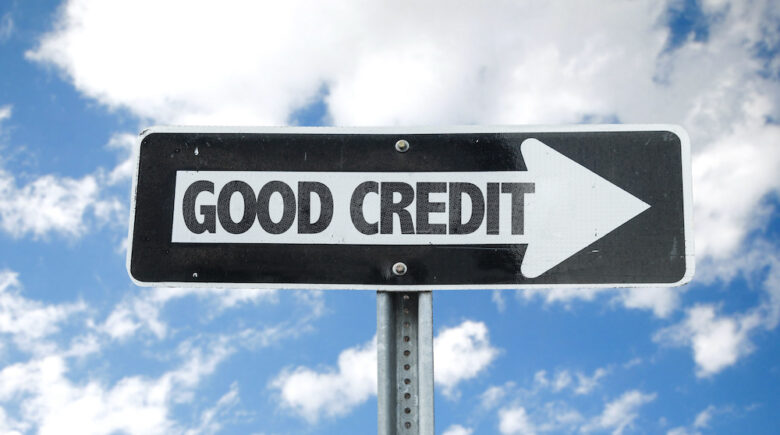If you’re looking to build a strong credit score, you’ve come to the right place. In this blog post, we will discuss 8 tips that will help you achieve your goal. Having a good credit score is important for many reasons. It can help you get approved for a loan, rent an apartment, and even get a job. Follow these tips and you’ll be on your way to an ideal credit score in no time!
1. Check your credit report regularly
A credit score is important because it is one factor that lenders consider when you apply for a loan or credit card. The higher your score, the more likely you are to be approved for a loan with favorable terms. A good credit score can also save you money because it can help you qualify for lower interest rates. Checking your credit report is the best way to stay on top of your credit score. By law, you are entitled to one free credit report from each of the three major credit bureaus every year. You can request your report online, by phone, or by mail. It’s a good idea to check your report every four months so that you can catch any errors or negative information that may be dragging down your score. If you find any inaccurate information, you can dispute it with the credit bureau.
2. Make all of your payments on time
A good credit score is essential if you want to qualify for a loan, get a lower interest rate, or rent an apartment. Payment history is one of the main factors that determines your credit score, so it’s important to make all of your payments on time, every time. If you’re worried about forgetting to pay a bill, set up automatic payments. That way, you can be sure that your bills are always paid on time. Keep in mind that late payments can stay on your credit report for up to seven years, so it’s best to avoid them if at all possible. By taking these steps, you can improve your credit score and enjoy the many benefits that come with having good credit.
3. Keep your credit card balances low
Your credit score is one of the most important measures of your financial health, and a big factor in determining whether you can qualify for loans or lines of credit. One of the most important factors in your credit score is your credit utilization ratio – this is simply the percentage of your total credit card balances that are outstanding at any given time. A lower credit utilization ratio indicates that you are managing your debt responsibly, and generally speaking, it’s best to keep this number below 30%. To maintain a good ratio, it’s important to be mindful of how much you owe and make sure not to max out your cards. By paying your balances off each month or making regular payments when they do go over 30%, you can ensure that you stay on top of this vital aspect of your overall financial health. So take control of your credit today by keeping an eye on that all-important utilization ratio!
4.Use a mix of different types of credit
Lenders like to see that you can manage different types of credit responsibly before they give you a loan. This is because it shows them that you are likely to make your payments on time and in full. Having a mix of different types of credit in your name is one way to demonstrate this. For example, you might have a revolving line of credit, such as a credit card, and an installment loan, such as a car loan. Managing both of these responsibly will show lenders that you are capable of handling different types of credit products. Additionally, having a mix of credit types can also help to improve your credit score. So if you’re looking to get a loan in the near future, consider diversifying your credit portfolio. It could end up helping you in more ways than one.
5. Apply for new credit only when necessary
When it comes to your credit score, every time you apply for a loan or a new line of credit, your score takes a small but noticeable hit. While these hits may seem insignificant in the moment, they can really add up over time, negatively impacting your overall credit score and making it more difficult to qualify for loans and other forms of credit in the future. Because of this, it is best to only apply for new credit when you really need it. For example, you should never apply for a new card just because there is an enticing sign-up bonus or rewards program. Instead, focus on applying for lines of credit that are truly necessary in order to ensure that your overall financial health is not compromised by unnecessary applications. By doing so, you can help keep your credit healthy and avoid any unnecessary setbacks that can derail your financial goals.
6. Keep old accounts open
Closing an old credit account can actually hurt your credit score. This is because it lowers your overall credit limits, which in turn raises your credit utilization ratio. If you don’t want to keep using an old account, you can simply leave it open and inactive.
7. Use a secured credit card if necessary
If you have bad credit, you may not be able to qualify for a traditional credit card. In this case, you can use a secured credit card instead. A secured credit card requires you to put down a cash deposit that serves as your credit limit. This deposit is refundable if you close your account and pay off your balance in full.
8. Monitor your credit score
The best way to improve your credit score is to simply keep tabs on it. There are a few different ways you can do this. You can check your credit report regularly (as we discussed in tip #). You can also sign up for a free credit monitoring service, such as Credit Karma or Credit Sesame. These services will notify you of any changes to your credit score so you can take action accordingly.
By following these tips, you can build an ideal credit score in no time! Just remember to check your credit report regularly, make all of your payments on time, and keep your balances low. If you do these things, your credit score will improve in no time.
If you’re looking to build a strong credit score, you’ve come to the right place. In this blog post, we will discuss 8 tips that will help you achieve your goal. Having a good credit score is important for many reasons. It can help you get approved for a loan, rent an apartment, and even get a job. Follow these tips and you’ll be on your way to an ideal credit score in no time!
1. Check your credit report regularly
A credit score is important because it is one factor that lenders consider when you apply for a loan or credit card. The higher your score, the more likely you are to be approved for a loan with favorable terms. A good credit score can also save you money because it can help you qualify for lower interest rates. Checking your credit report is the best way to stay on top of your credit score. By law, you are entitled to one free credit report from each of the three major credit bureaus every year. You can request your report online, by phone, or by mail. It’s a good idea to check your report every four months so that you can catch any errors or negative information that may be dragging down your score. If you find any inaccurate information, you can dispute it with the credit bureau.
2. Make all of your payments on time
A good credit score is essential if you want to qualify for a loan, get a lower interest rate, or rent an apartment. Payment history is one of the main factors that determines your credit score, so it’s important to make all of your payments on time, every time. If you’re worried about forgetting to pay a bill, set up automatic payments. That way, you can be sure that your bills are always paid on time. Keep in mind that late payments can stay on your credit report for up to seven years, so it’s best to avoid them if at all possible. By taking these steps, you can improve your credit score and enjoy the many benefits that come with having good credit.
3. Keep your credit card balances low
Your credit score is one of the most important measures of your financial health, and a big factor in determining whether you can qualify for loans or lines of credit. One of the most important factors in your credit score is your credit utilization ratio – this is simply the percentage of your total credit card balances that are outstanding at any given time. A lower credit utilization ratio indicates that you are managing your debt responsibly, and generally speaking, it’s best to keep this number below 30%. To maintain a good ratio, it’s important to be mindful of how much you owe and make sure not to max out your cards. By paying your balances off each month or making regular payments when they do go over 30%, you can ensure that you stay on top of this vital aspect of your overall financial health. So take control of your credit today by keeping an eye on that all-important utilization ratio!
4.Use a mix of different types of credit
Lenders like to see that you can manage different types of credit responsibly before they give you a loan. This is because it shows them that you are likely to make your payments on time and in full. Having a mix of different types of credit in your name is one way to demonstrate this. For example, you might have a revolving line of credit, such as a credit card, and an installment loan, such as a car loan. Managing both of these responsibly will show lenders that you are capable of handling different types of credit products. Additionally, having a mix of credit types can also help to improve your credit score. So if you’re looking to get a loan in the near future, consider diversifying your credit portfolio. It could end up helping you in more ways than one.
5. Apply for new credit only when necessary
When it comes to your credit score, every time you apply for a loan or a new line of credit, your score takes a small but noticeable hit. While these hits may seem insignificant in the moment, they can really add up over time, negatively impacting your overall credit score and making it more difficult to qualify for loans and other forms of credit in the future. Because of this, it is best to only apply for new credit when you really need it. For example, you should never apply for a new card just because there is an enticing sign-up bonus or rewards program. Instead, focus on applying for lines of credit that are truly necessary in order to ensure that your overall financial health is not compromised by unnecessary applications. By doing so, you can help keep your credit healthy and avoid any unnecessary setbacks that can derail your financial goals.
6. Keep old accounts open
Closing an old credit account can actually hurt your credit score. This is because it lowers your overall credit limits, which in turn raises your credit utilization ratio. If you don’t want to keep using an old account, you can simply leave it open and inactive.
7. Use a secured credit card if necessary
If you have bad credit, you may not be able to qualify for a traditional credit card. In this case, you can use a secured credit card instead. A secured credit card requires you to put down a cash deposit that serves as your credit limit. This deposit is refundable if you close your account and pay off your balance in full.
8. Monitor your credit score
The best way to improve your credit score is to simply keep tabs on it. There are a few different ways you can do this. You can check your credit report regularly (as we discussed in tip #). You can also sign up for a free credit monitoring service, such as Credit Karma or Credit Sesame. These services will notify you of any changes to your credit score so you can take action accordingly.
By following these tips, you can build an ideal credit score in no time! Just remember to check your credit report regularly, make all of your payments on time, and keep your balances low. If you do these things, your credit score will improve in no time.



